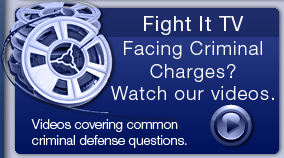Traffic Ticket Lawyer in St. Lucie County
St. Lucie County is located in south Florida next to the Atlantic Ocean. The U.S. Census Bureau estimates that, as of 2011, the population of St. Lucie County is 280,379 people. The largest cities in the county include Port St. Lucie, Fort Pierce and St. Lucie Village. St. Lucie County has several historical sites, including The Boston House/Cresthaven, Moores Creek Bridge and Old Fort Park. The county has over 21 miles of beaches and nature preserves, including Bear Point Sanctuary, Hermans Bay Beach, Bluefield Preserve and Middle Cove Beach.
St. Lucie County Law Enforcement and Circuit Courts
The St. Lucie County Sheriff’s Office, as well as Fort Pierce Police Department and Port St. Lucie Police Department, are responsible for law enforcement in St. Lucie County. The county is part of Florida’s Nineteenth Judicial Circuit Court. Traffic violations for the county are managed by the Fort Pierce Clerk’s Office and South County Annex. The Fort Pierce Clerk’s Office is located at 201 South Indian River Drive in Fort Pierce, Florida. The South County Annex is located at 250 N.W. Country Club Drive in Port St. Lucie, Florida.
St. Lucie County has 13 circuit and county judges. The circuit judges for St. Lucie County are
* Judge Barbara W. Bronis
* Judge Dwight L. Geiger
* Judge Mark W. Klingensmith
* Judge Robert R. Makenson
* Judge Lawrence M. Mirman
* Judge Larry Schack
* Judge Gary L. Sweet
* Judge Dan L. Vaughn
The county judges for St. Lucie County are
* Judge Cliff Barnes
* Judge Kathryn Nelson
* Judge Philip J. Yacucci
* Judge Thomas J. Walsh
Judge Terry A. Slusher is the magistrate judge for St. Lucie County.
Traffic Tickets in St. Lucie County
A traffic lawyer understands the city and county traffic laws in St. Lucie County. Traffic tickets in St. Lucie County are for moving and non-moving violations. Moving violations happen while you are operating your vehicle. These types of violations include
* Speeding
* Failing to stop at a red light
* Driving under the influence
Traffic tickets for non-moving violations include
* Parking in a handicapped parking space without a proper permit
* Driving a vehicle that does not have proper registration
* Having expired license plates on your vehicle
* Operating a vehicle that is missing the license plates
Talk to a Traffic Lawyer When You Receive a Traffic Ticket in St. Lucie County
Before you pay your St. Lucie traffic ticket, you should understand your options. A traffic lawyer helps you choose the best option based on your individual case. Your options include
* Admitting guilt by paying the ticket
* Attending a driver improvement course to protect your driving record
* Fighting your ticket
Paying your ticket is an admission of guilt. Points are added to your driving record, and your insurance premiums increase. Fighting your ticket in court protects your driving record. If you choose to fight your ticket, a traffic lawyer represents you in your case, and keeps points from being added to your driving record.
Florida’s Point System and Your Driving Privileges
When you are found guilty of a traffic violation in St. Lucie County, either by paying your ticket or after losing in court, points are added to your driving record. Each violation carries a specific number of points. When you reach a specific number of points, your driving privileges are suspended.
Insurance companies monitor driving records, and raise your premiums as your points increase. With just a few traffic violations, your premiums can become a significant financial burden.
Traffic lawyers understand Florida’s point system, as well as traffic violations in St. Lucie County. Working with a traffic lawyer for your traffic tickets helps you keep points off your driving record, which keeps your premiums more manageable. Traffic lawyers also know how to help you get points removed from your driving record.
If you have received a traffic ticket in St. Lucie County, call our law office to discuss your case.
















